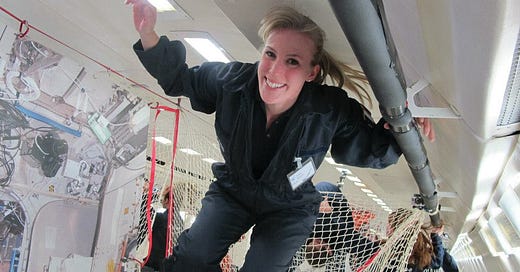Unlocking the Science of Human Factors: Insights from Astronaut Training
I am recently back from the European Astronaut Centre where I trained ESA's new Astronaut Class in Human Factors
I had such a welcome response to my post on LinkedIn summarising some of the topics that we covered, that I thought I would start a Substack to explain a little more about what Human Factors and Human Performance training is, and how it can help you or your organisation's safety, performance and well-being.
I'll start by defining what I mean by Human Factors and Human Performance.
Human Factors
Put simply, Human Factors looks at how to ensure humans are safely interacting with technology, hardware, equipment, and that the processes and procedures we are using are minimising human error. Examples are:
1) What we might think of as ergonomics e.g. the design of a work station, or the measurements of the Soyuz seat created specifically for each crew member to take them to space.
2) What we might think of as User Interface and User Experience (UI/UX) e.g. the interface between a crew member and a payload on the International Space Station, or the many interfaces used by a ground control team whilst operating or monitoring a satellite.
In other sectors UI/UX is often associated with increasing engagement. In safety critical environments, we are more concerned with safety, usability and reducing the chances of human error.
Human Performance
Human Performance is concerned with the skills people need to operate at their peak. These are commonly known as 'soft' skills or 'non-technical' skills in aviation, and encompass a variety of themes including effective communication, teamwork, leadership, decision making and problem solving, to name a few.
There are countless other definitions and explanations of these two things, but this is how I define them. They are interrelated and interdependent with each other. To perform effectively, safely and productively at work, you ideally need to have great human performance skills and also work in an environment where human factors have been taken into account.
If you’re interested in these subjects and would like to find out more from my training in Human Factors or Human Performance, please subscribe :-)



